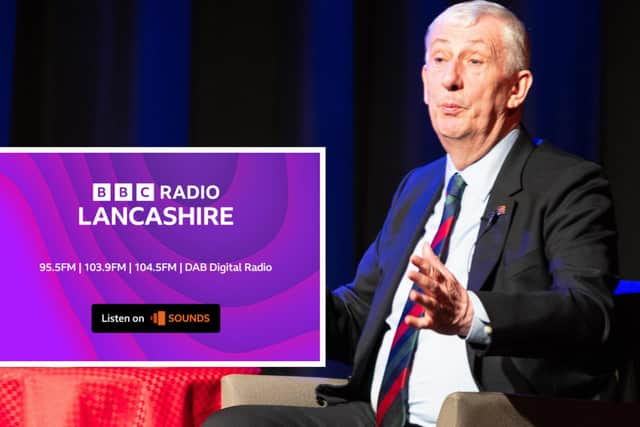'Hands off Radio Lancashire': Sir Lindsay Hoyle defends BBC local radio in the face of slashed schedules
and live on Freeview channel 276
The veteran parliamentarian’s intervention came during a session of culture, media and sport questions in the House on Thursday - the same day that National Union of Journalist (NUJ) members at BBC local stations across the country were on strike over planned cuts to content for each of the areas they serve.
Dame Caroline Dinenage, the Tory chair of the culture, media and sport committee, raised concerns about the impact of the shake-up on “many of the elderly, vulnerable and isolated people in our communities”.
Advertisement
Hide AdAdvertisement
Hide AdSir Lindsay then interrupted the proceedings to tell MPs there might be “empty studios if we are not careful”, adding: “And we certainly don’t want to see the end of Radio Lancashire.”


The overhaul would see local stations like Radio Lancashire left with just eight hours of programming dedicated solely to their own patch on weekdays between 6am and 2pm. At other times, shows would be shared across sub-regions, regions and, at some points in the schedule, even the whole of England.
Radio Lancashire would share its weekday afternoon programme with Radio Cumbria as part of the shake-up.
At weekends, there would be no wholly local area programmes except for sport, which, under the new arrangements, would also continue to be broadcast on weeknights when local football teams are in action.
Advertisement
Hide AdAdvertisement
Hide AdThe schedule of local news bulletins would be unaffected, with these still being slotted in to shows networked across wider areas.
Earlier this month, Lancashire county councillors resolved to write to BBC top brass to demand that the station be adequately funded.
The 24-hour NUJ walk-out last week was the third period of industrial action in protest at the radical proposed revamp, with the strike ironically forcing stations like Radio Lancashire to broadcast the kind of multi-area shared content that the union is trying to prevent becoming a permanent fixture.
However, Radio Lancashire listeners themselves might not have noticed too much difference on the strike day - other than the mention of far-flung place names. That is because it was two of the outlet’s regular presenters - breakfast show host Graham Liver and mid-morning jock Sharon Hartley - whose shows were aired across a wider area to plug the gaps in other BBC local stations’ schedules.
Advertisement
Hide AdAdvertisement
Hide AdPaul Siegert, NUJ national broadcasting organiser, said that “slashing local radio and changing ways of working remain deeply unpopular” among members.
“We’re asking [BBC director general] Tim Davie to pause and rethink. We believe there are ways to protect and promote digital investment without cutting much loved and valued local radio content.
“With an election around the corner, holding local politicians to account is more important than ever. Let’s protect and promote BBC Local, not eviscerate it.”
The BBC says that it is redeploying its resources so that it can provide more local digital content to reflect changing consumption habits amongst licence fee payers. It is also investing in 11 new investigative teams.
Tim Davie told members of Dame Caroline’s committee last month that the planned local radio changes were “the right thing”, but admitted that they were proving “very difficult and unpopular”.
